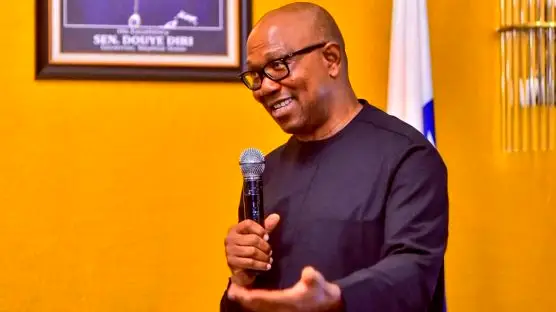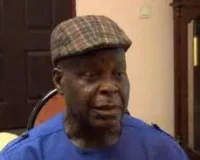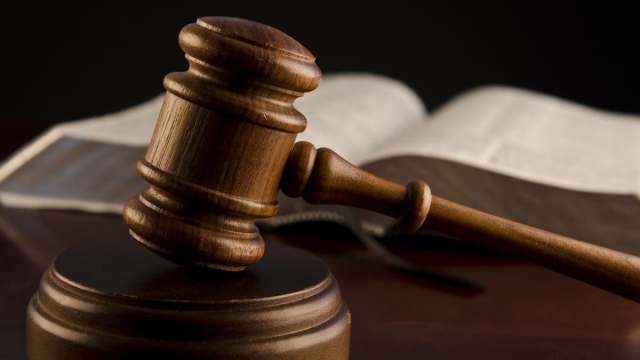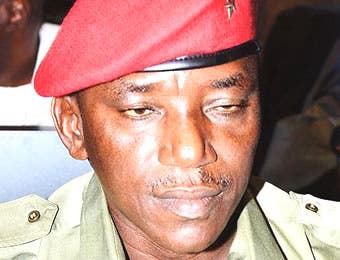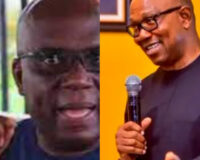By Chuks Iloegbunam
Sitting inside his Apapa, Lagos, office, one day, just the two of us, and holding lighthearted conversation, Peter Obi suddenly said that he would forever be grateful to Onyechi
Ikpeazu. Why did he say that? I didn’t put the question to him. All the time the suit to claim his stolen electoral mandate was in the courts, there was no day we met without discussing it, at least tangentially. Sometimes we had a full house.
At other times, half a full house. On certain occasions, just the two of us. In every shape or setting we had, the case came up for exhaustive or salutary examination. Not once did he talk of Dr. Ikpeazu being worthy of perpetual gratitude. So why did he raise it now? I looked at him intently, saying nothing.
He resumed: “When we were going to challenge INEC’s declaration of Dr. Ngige as the winner of the governorship election, our plan was to file the case in the name of APGA,” he said. “But Onyechi refused and said I must file the case in my own name. I didn’t immediately see his point because, apart from not being a lawyer, I assumed that since I contested the election on APGA’s platform, the party must file the case. Onyechi refused and said no. ‘If APGA filed the case, they might run out of steam during the proceedings and throw in the towel, even if you hold a contrary opinion. File the case in your name; you contested the election. Only you can legitimately dictate whether or not to go the whole hog.’”
I saw his point. The previous night, word had come in that the APGA national chairman had been in Awka, where he was received with fanfare at a press conference, after which the Governor conducted him round Anambra State to inspect the road projects his government was undertaking. At the tour’s end, the APGA chairman had addressed the press, saying that APGA, as a political party, no longer had any interest in the further prosecution of the case against INEC and Dr. Ngige. That meant one thing: had APGA filed the case, the chairman’s repudiation of continuing it would have closed the matter, without the stolen mandate recovered. That was one of the reasons why Peter Obi held Dr. Onyechi Ikpeazu (SAN) in awe.
I tell this story as foundation for addressing charges in uninformed quarters that portray Peter Obi as paperweight and bereft of resilience. A lot of those who were vociferous in the resolve to challenge INEC’s declaration of Ngige as winner of the governorship election turned coat as the case progressed. Their problem may have been fatigue. Or capitulation to the weariness of protracted litigation. Or financial inducement. Or an after-the-event realisation that the kernel of life-and-death struggles was seedless.
I do not know. Nor do I care to speculate. The point is that Peter Obi sallied forth, refusing to cave in under the pressures of the respondents’ contrived delays in the judicial proceedings, the obvious high cost of the litigation itself and the multitude of betrayals strewn like thorns along the path to justice. It took three years, but victory came in the ultimate. That cannot underscore the character of someone without conviction, somebody not imbued with a resilient spirit.
People say that Peter Obi is soft-spoken. That is correct. But it is not contrived. That was a card nature dealt him. The fact that he does not believe in blustering or what Nigerians call gra-gra in common parlance, persuaded some to see the man as a weakling, a man bereft of resolve. But time and again, he proved them wrong. He was only eight months in the governorship when his first major challenge came.
Impeachment! I feared its contingency from the day he took the Oath of Office because most of the State House of Assembly members were of the Peoples Democratic Party, PDP. So, in one of the reception parties organised for the Obi administration(he was not present), I pulled aside Dr. Ben Obidigbo, a House member I had known from my London days, and before he entered politics, and pointedly asked him if he thought the House could attempt to impeach Obi. “That would depend on the kind of signals that come from Abuja,” he replied.
I didn’t know what signals came from Abuja and those that were transmitted from inside Anambra State. But at 5:30 am one Sunday, my phone rang as I was readying for mass at the St. Joseph, the Worker Catholic Church, which was a minute’s walk from Parktonian Hotel where I was staying at the time. The caller was Peter Obi.
“Come to the Lodge,” he said the moment I picked the call, cutting off. In Awka, Government House was where the Governor had his office. Government Lodge in Amawbia was his official residence. I got to the Lodge in less than 20 minutes and was surprised at the large number of officials milling around the frontage of the main mansion. Inside the main sitting room, there were even more officials stooped over Mrs. Ebele Okonkwo, one of our secretaries, who at the time lived inside the Lodge estate.
Mr. Peter Afuba, the Attorney General, was dictating a letter to Mrs. Okonkwo. Many voices were adding words and phrases. I saw Reverend Sister Martina Obi, the Governor’s sister, sitting calmly at the far end. Perhaps she had used the night inside the Lodge, meaning to join the Sunday Mass there.
Not immediately seeing Peter, I raised my voice with a question: “What’s going on here?” That was when those standing next to the secretary noticed that I was among them. “They have started impeachment proceedings,” a voice answered. I was stunned. I decided to see the governor immediately. Walking away from the sitting room to head to the private area of the Lodge, I nearly bumped into Peter as he was returning to the sitting room. “Can you believe that I cannot get the Chief Judge on the phone?” T
hat question was the first thing he said on seeing me. The State Chief Judge was Mr. Justice Chuka Jideofor Okoli, who had sworn-in Peter Obi as Governor. It turned out that the attempt to contact him by phone had started the previous night, when word got to the Governor that the House had readied itself to move against him. It struck me then that I would have received my own summons to report at the Lodge much earlier if my phone hadn’t been switched off.
When I left Parktonian for the Lodge that morning, the idea was that I would settle for evening mass. Most of us were still at the Lodge that Sunday until nightfall, making frantic calls to many places including Abuja, undertaking personal visits to the home of prominent people, scheming to thwart a move we were convinced was unwarranted.
Early the next day, the impeachment news had spread like wildfire, even though it hadn’t been reported in the orthodox media. (Social media wasn’t in vogue then.) I was surprised at around noon when I stepped out of the walled inner enclosure where the Governor’s office was located, to go have a word with Dame Virgy Etiaba, the Deputy Governor, only to find the outside lined with people protesting the impeachment move.
For the next three weeks, I had a hard time of it, with Chief Press Secretary Mike Udah, receiving group after group of demonstrators on solidarity visits, addressing them and promising them that everything would be all right. The visit of one group left many weeping profusely.
Someone had brought in kids from some orphanage and others who were physically challenged, including the crippled, the blind and the victims of cerebral palsy. To see and hear those children singing that their Governor should not be impeached was quite moving. But it was none of the business of the House members, who had ditched their chambers and relocated to Asaba, in Delta State. Most of them seemed to have changed phone numbers.
Iloegbunam, an author, wrote via:chuks.iloegbunam@gmail.com

